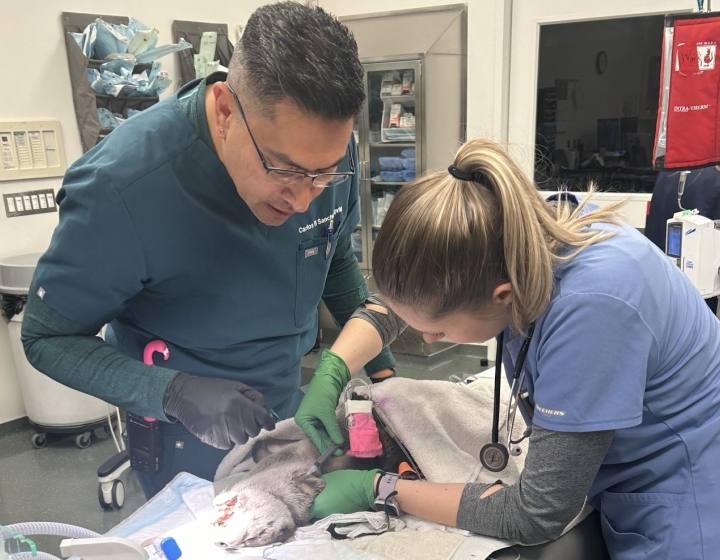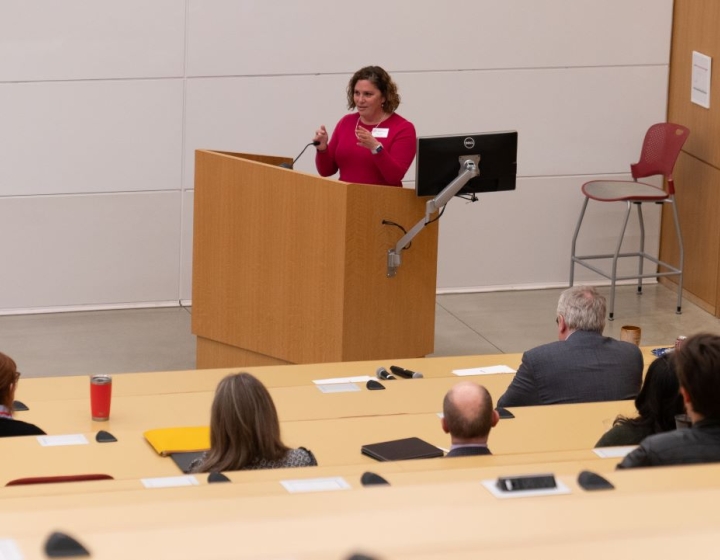Faculty wins lifetime achievement award for modeling epidemiology
 Read in the Cornell Chronicle
Read in the Cornell Chronicle
Dr. Yrjo Grohn, professor of epidemiology at Cornell’s College of Veterinary Medicine, has been honored with a lifetime achievement award for his work in veterinary epidemiology and preventive medicine. As the awardee, he was given the opportunity to build the program for a daylong symposium that features topics related to his work using mathematical modeling to understand the spread of infectious diseases and optimize food production systems.
The Association for Veterinary Epidemiology and Preventive Medicine (AVEPM) presents one Calvin W. Schwabe Award each year. The winner puts together a symposium for the longer AVEPM conference, which draws more than 100 epidemiologists annually. Entitled "The whole is not only more than but very different than the sum of its parts," the symposium honoring Grohn’s work took place in Chicago in December, 2013.
“I’m honored to receive this award named after Schwabe, whose pioneering work was an inspiration in my early career,” said Grohn. “He inspired me to follow my passion for systems thinking, a style of problem solving that maps out how factors in a system influence one another within a whole. I look forward to bringing colleagues together for a day of discussing system thinking in epidemiology and to the many more years I plan to explore it.”
Grohn has enriched the veterinary epidemiology arena with research shared through a large number of frequently cited publications, including a paper in the renowned journal Nature in fall 2013. He is widely known for his pioneering work on mixed models and dynamic programming. He has received continuous USDA funding while simultaneously holding a major NIH grant in the area of public health. A highly regarded educator, he helped lead a series of workshops taught at Cornell and at the triennial International Symposium of Veterinary Epidemiology and Economics in countries throughout the world.
He has served on over 30 PhD committees and supervised numerous postdoctoral research fellows. In 2007 he was bestowed the honor of presenting the Gareth Davis Lecture at the foremost European veterinary epidemiology society. Through numerous publications, presentations and courses over his career of 25 years in veterinary epidemiology and preventive medicine, Dr. Grohn’s research and teaching have advanced veterinary epidemiology.
Grohn’s colleague Dr. Martin Wiedmann, professor of food science at Cornell, gave the symposium’s first talk, discussing the state of research in prevention and control of foodborne and zoonotic diseases. Drs. Renata Ivanek and Cristina Lanzas, two of Grohn’s former postdoctoral associates who are now professors followed, describing the transition from lab research to mathematical modeling.
Connecting models back to the real world, Grohn’s colleague Dr. Ynte Hein Schukken, professor of epidemiology and herd health at Cornell, followed by discussing how models process the data that feeds into them. Another colleague, Danish economist Dr. Anders Kristenson, then discussed the question of money and how biological models can aid economic optimization and decision-making in farms and other contexts.
Grohn closed by painting the big picture, describing how smaller models can combine to create larger-scale models that could begin mapping out the world’s incredibly complex modern food systems and create massive models that could inform strategies for preventing and intervening in foodborne disease outbreaks, a subject he hopes to study for years to come.





